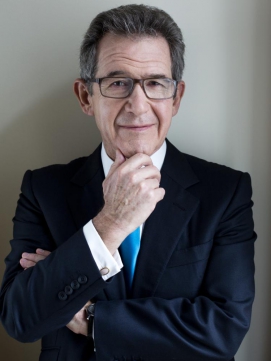[Premium] Gas - No Longer the Cinderella Fuel: John Browne
Long-term BP CEO-turned private equity fund manager John Browne declared his support for gas at an oil negotiators' conference April 25, saying it was "remarkable" and possibly more than a transition fuel.
"When I joined the oil industry," the veteran geologist said, "The only thing worse than drilling a dry well was finding gas in the reservoir, not oil. It was the Cinderella fuel, and that mindset has taken a long time to change. Gas works in co-operation with other things."
Browne however said the onward march of electrification was unstoppable and, while a carbon-free life is not yet reality, the oil and gas industry has to go lighter and lighter in its energy production, in a careful, studied way.
In discussion with lawyer Paul Griffin, Browne said that the challenge facing the industry was to do something for humanity and to attract talent, because everything needs energy as it represents "the fundamental platform of the world. Oil companies need to be as efficient as possible and change the energy mix."
Among the challenges that the industry faces is deciding how to handle renewable energy, which is getting better all the time in terms of capacity and scale: this poses "a great industrial, commercial and marketing challenge." Yet while renewables are clearly "a business on the move," they have their limits as do other forms of energy. The intermittency of wind and solar is "a truism" he said, but the logical next step, batteries, make little sense as natural gas is 100 times cheaper than battery storage.
Nevertheless, he said: "Oil and gas producers no longer enjoy the same level of trust as before, and they should make no assumptions that they have got it right.
"Anyone who looks at the world practically, will say we cannot do without fossil fuels until a very long time in the future," said Browne. Nonetheless there is a big drive towards zero-carbon energy. Demands that fossil fuel companies be forced to divest were growing. Whether enforceable or not, said Browne, adding "I am not a litigator", such demands were a clear signal that companies were on notice.
The remarks were made at the AIPN's International Petroleum Summit in London, where the 70-year-old veteran was quizzed on what the energy company of the future would look like. He spoke the day after the current BP CEO Bob Dudley addressed the same conference about curbing emissions, responding robustly to calls from academia for the divestment of oil and gas stocks.
Browne worked at BP for four decades, joining it as an undergraduate geologist in 1966 and overseeing a series of acquisitions during the oil price slump of the late 1990s, notably Amoco and Arco. He ran BP's upstream business as board member in 1989 and became CEO in 1991, resigning in 2007 after being outed as homosexual and accused of misusing company funds. He now works as executive chairman of LetterOne Energy, a holding controlled by Russian investor Mikhail Fridman, and as supervisory board chairman for LetterOne's Hamburg-based upstream subsidiary DEA. In 2015 he stepped down from the board of US private equity fund Riverstone Holdings, and as chairman of its UK shale exploration subsidiary Cuadrilla Resources.
Among the achievements of which he said he was proud were buying US Amoco and Arco; the 50-50 joint venture with Russian oil producer TNK; and negotiating the construction of the Baku-Ceyhan oil pipeline and the development of the Caspian Azeri-Chirag-Guneshli, or ACG, oilfield (pictured above, credit: Wood Group). The Amoco deal also brought with it the Texas City refinery, where fatally lax safety standards led to an explosion in 2005 that killed 15. BP took full responsibility for not assessing the risks, he said.

DEA supervisory board chairman John Browne, who headed BP from 1995 until 2007 (Photo credit: DEA)


_f1920x300q80.jpg)
